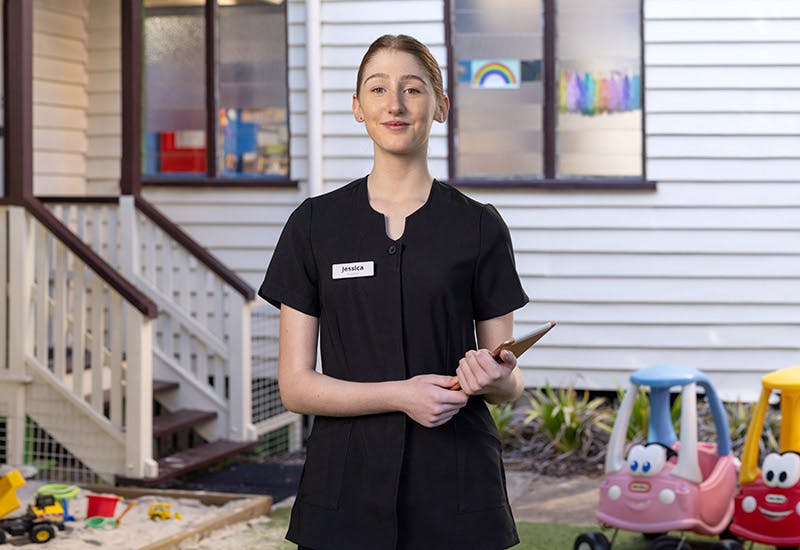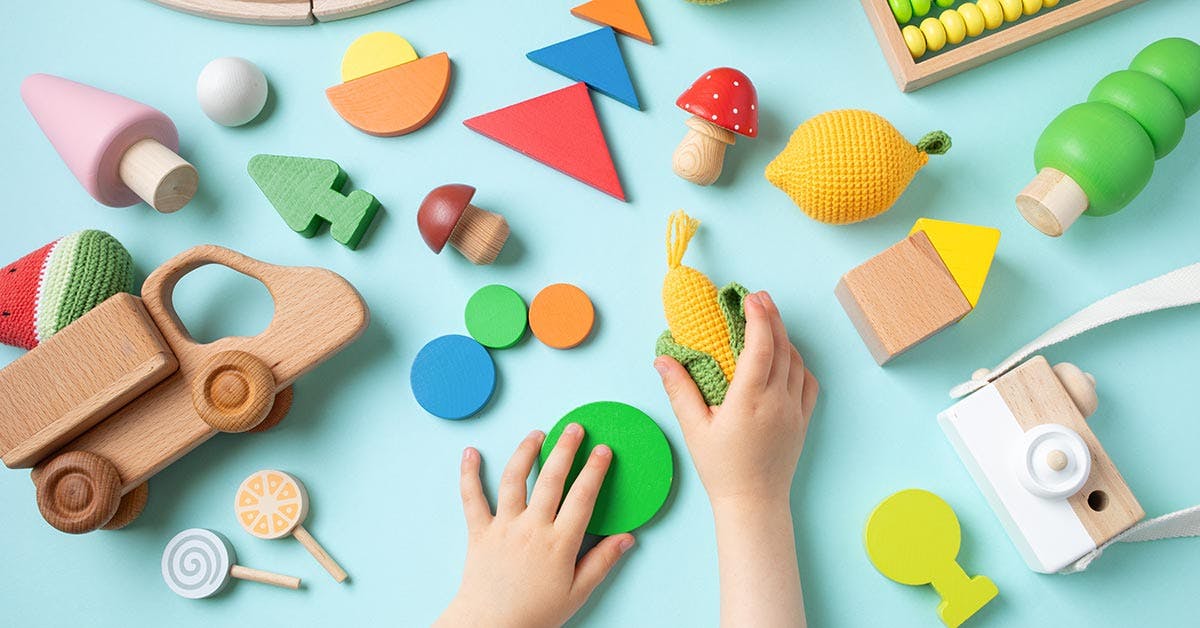12 May 2025
How to Study Early Childhood Education?
Want to make a career out of helping kids learn? Early Childhood Education offers both rewarding work and growth opportunities in an in-demand field.
But if you want to get a start in this sector, you’ll need to get qualified. In this article, we’ll help you navigate all the different course and delivery options and answer any questions you may have about work placement.
Study options in Early Childhood Education
You have a few different options when looking at Early Childhood Education qualifications.
Online learning with Foundation Education
Studying with Foundation Education lets you learn online whenever and wherever it suits you. Our My eCampus platform gives you access to all your course materials 24/7, so you don’t have to stop working to study.
Our online courses give you:
Freedom to study at your own pace
Individual support when you need it
No need to commute or stick to class schedules
Practical skills through structured work placement
Nationally recognised qualifications
Other study options
While Foundation Education offers a flexible way to study, there are other paths to getting your Early Childhood Education qualification:
TAFE: TAFE courses happen in physical classrooms with set attendance times. This might work for you if you learn better in person and prefer structured classes, but it won't offer as much flexibility.
Uni: If you want to become a teacher, you'll need a university degree. These take 3–4 years to complete and are a bigger time and money commitment.
Early Childhood Education course options
Early Childhood Education courses follow a clear pathway, with each qualification building on the previous. Here's what you need to know about each course option:
Certificate III in Early Childhood Education and Care
The CHC30121 Certificate III in Early Childhood Education and Care is your entry point into the industry. By law, you need at least this qualification (or be actively studying toward it) to work in childcare in Australia.
In this course, you’ll learn how to support children’s health, safety and wellbeing under approved learning frameworks. It takes up to 18 months to finish and includes 160 hours of practical work placement.
With this qualification, you can work as a:
Kindergarten Assistant
Long Day Care Educator
If you're specifically interested in Family Day Care, there's also a specialised CHC30121 Certificate III in Early Childhood Education and Care (Family Day Care) that has units on home-based childcare.
Diploma of Early Childhood Education and Care
The CHC50121 Diploma of Early Childhood Education and Care is the next step up. This qualification builds on your Certificate III knowledge and prepares you for leadership roles.
It takes up to 24 months to finish and requires 280 hours of practical placement.
With this qualification, you can work as a:
Group Leader
Childcare Director
Educational Leader
Assistant Director
Lead Educator
Certificate III and Diploma combined
Want to fast-track your studies? The combined CHC30121/CHC50121 Certificate III in Early Childhood Education and Care and Diploma of Early Childhood Education and Care package gives you both qualifications in one program.
This can take up to 36 months to finish and has 440 hours of practical placement. While it's a longer initial commitment, you won’t have to go back to study before you get into leadership.

How to choose the right course
Choosing the right early childhood course depends on your career goals, previous experience and time available:
New to the industry? Start with the Certificate III to build core skills and get working quickly.
Already working in childcare? The Diploma will help you get promoted.
Want to move up quickly? The combined qualification gives you both certifications in one program.
Interested in home-based care? Consider the Family Day Care specialisation.
Flexible study options
Foundation Education offers flexible study options so you can get qualified no matter what your situation is.
Accelerated learning
If you're able to dedicate more time to your studies, you can complete your qualification faster. This approach allows you to progress through your course at a quicker pace:
Certificate III: 9–12 months
Diploma: 18 months
Combined qualification: 24–30 months
Flexible learning
For those with work, family, or other commitments, our flexible learning options give you the ability to study at a pace that suits your lifestyle. This allows you to manage your studies alongside your personal responsibilities:
Certificate III: 12–18 months
Diploma: 24 months
Combined qualification: 30–36 months
What you can expect during your studies
Studying Early Childhood Education with Foundation Education is different from traditional classroom learning. It centres around My eCampus, an online platform you can access anytime.
You'll work through each unit at your own pace, with clear explanations, videos and practical examples. If there’s anything you don’t understand, our Education Team is on standby to give you support through email, phone and virtual sessions.
For the theory component, you'll need:
A computer with internet access
Basic software like Microsoft Word (or free alternatives)
A printer and scanner for some assessments
A mobile phone or camera for video assessments
You’ll also be assessed as you go — this is usually through assignments and online exams.
Practical placement information
All Early Childhood Education courses have placement hours where you apply your learning in real childcare settings.
How to find practical placement
Finding a placement might seem daunting, but there are a few things you can do:
Use existing workplace connections if you're already in the sector
Reach out to local childcare centres, kindergartens or family day care services
Ask Foundation Education's team for support in finding placement
You'll also need to apply for a Working with Children Check at the start of your course before beginning any placement.
What to expect during practical placement
Once you’ve landed your placement, you’ll be expected to treat it as you would any job. During this time, you'll:
Watch experienced educators in action
Help with daily activities and routines
Practice planning and implementing learning experiences
Build relationships with children, families and staff
Complete assessment tasks based on your workplace experiences
Your supervisor will provide feedback on your performance and complete a report as part of your assessment.
Study Early Childhood Education with Foundation Education
Getting qualified doesn’t have to be a chore. With Foundation Education, you don’t have to shuffle around your life to get an Early Childhood Education qualification.
By the end of your studies, you’ll have a nationally recognised certificate or diploma and real-world experience and connections.
Sold yet? Call us on 1300 616 197 to talk things through more, or browse our Early Childhood Education courses to find the best fit for you.
Related Articles

National Child Protection Week: student action guide for future ECEC educators
National Child Protection Week: a student guide to child-safe practice in ECEC with seven practical actions and links to Cert III and Diploma pathways.

Top Early Childhood Education Skills in Demand
Build the early childhood education skills Australian centres need and start a rewarding career in a sector tipped for strong growth through to 2030.
Proud member of

© Foundation Education | RTO Number 22557
